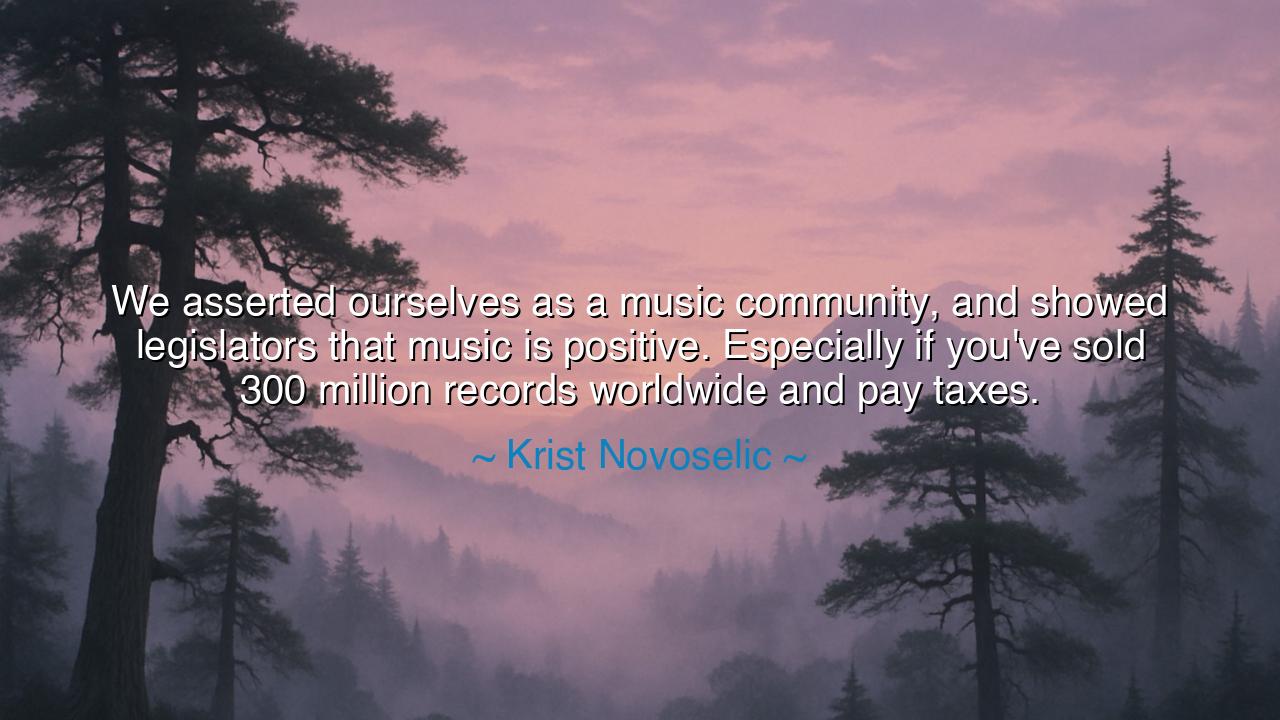
We asserted ourselves as a music community, and showed
We asserted ourselves as a music community, and showed legislators that music is positive. Especially if you've sold 300 million records worldwide and pay taxes.






The words of Krist Novoselic, “We asserted ourselves as a music community, and showed legislators that music is positive. Especially if you’ve sold 300 million records worldwide and pay taxes,” are the cry of an artist who understands that art does not live only in the soul—it must also contend with the halls of power. He speaks of the struggle where creativity and politics meet, and where a community of voices must rise together to defend its worth against those who would reduce it to noise, rebellion, or nuisance.
The origin of this declaration lies in the battles fought by musicians in the late twentieth century, when governments and watchdog groups sought to restrict or censor the language of song. In these moments, the music community had to prove that their craft was more than rebellion—that it was a cultural force, an industry, a livelihood. Novoselic reminds us that even the most transcendent art sometimes must bow its head in the courts of politics, proving its value not only in spirit but in numbers, in taxes, in the weight of millions reached.
Consider the story of the Parents Music Resource Center (PMRC) hearings of the 1980s. Musicians such as Frank Zappa, Dee Snider, and John Denver stood before Congress to defend the freedom of expression in music. They were treated as provocateurs, yet their testimonies showed that music was not a danger to society but a mirror of it, a force that could enlighten and heal as much as it could disturb. In the same way, Novoselic’s words show that even those who sell “300 million records” must sometimes remind the world of music’s positive power.
This is also a lesson in solidarity. Alone, one artist may be silenced, dismissed as eccentric or defiant. But as a community, musicians become undeniable—a chorus so loud that even legislators must listen. To “assert” themselves is not only to claim their rights, but to remind society that art is as vital as law, that the spirit of a people cannot thrive without its song.
The wisdom here is timeless: art and politics are not enemies, but uneasy partners. The state demands order, the artist demands freedom. Yet both must coexist, for a society without music is hollow, and an art without recognition struggles to endure. Novoselic’s triumph is in showing that the two can be reconciled, that even in the language of power—records sold, taxes paid—music can prove itself a force of good.
Let the generations remember: music is more than sound—it is community, industry, and truth. When threatened, artists must rise as one, not only with their songs but with their presence, to remind the world that music is positive, that it belongs not to the margins but to the very heart of society. For when the songs fall silent, the soul of a people withers, and no wealth nor law can revive it.






AAdministratorAdministrator
Welcome, honored guests. Please leave a comment, we will respond soon